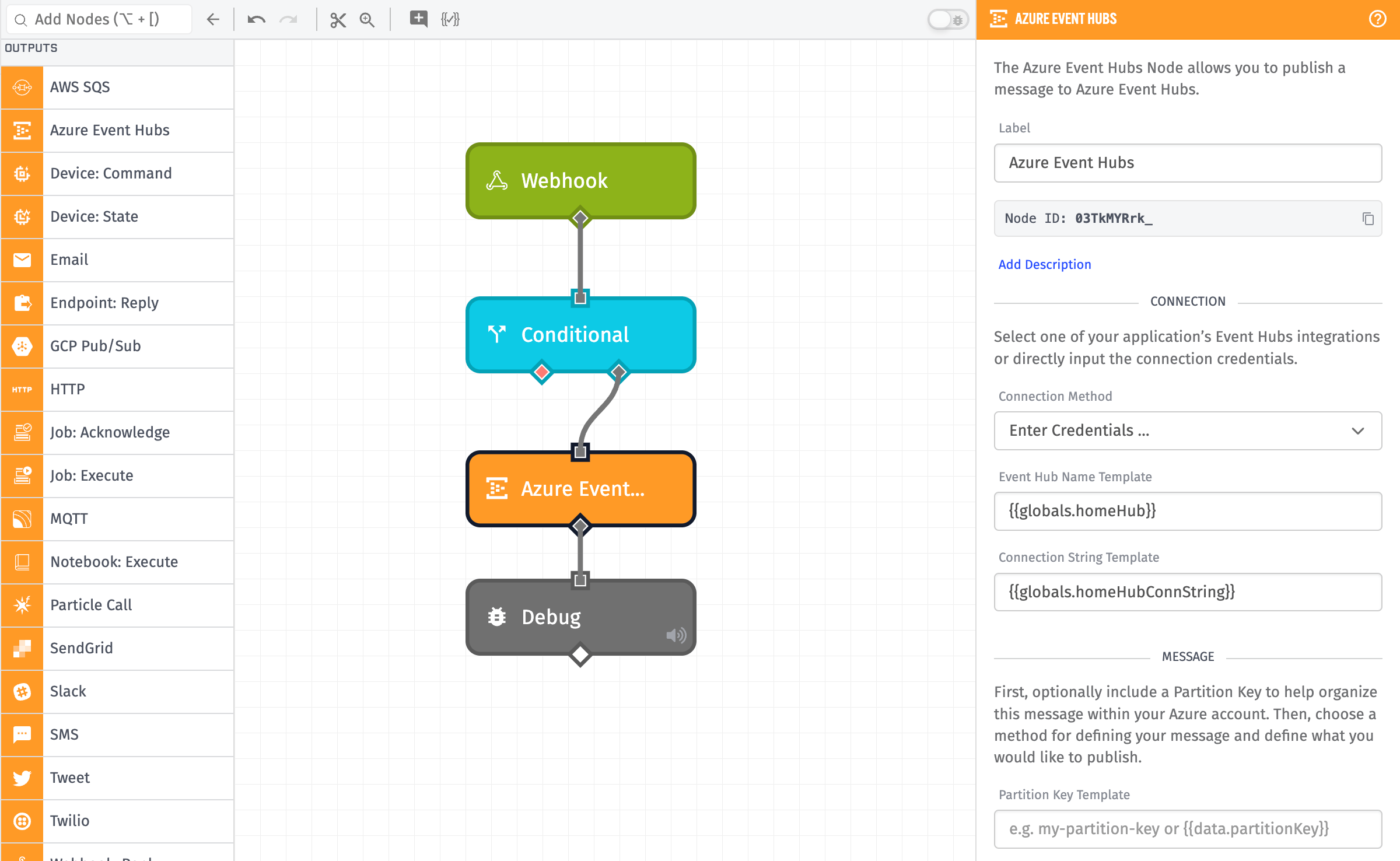Azure Event Hubs Node
The Azure Event Hubs Node allows a workflow to publish a message to an Azure Event Hub.

Configuration
Configuration for the node is broken up into four sections …
Connection
First, choose where to send your message.
-
Choose an Integration: Retrieves your Azure Event Hubs configuration from the selected Integration.
- Integration: Choose which of your application’s Azure Event Hubs integrations you would like to publish the message on. The ID is templatable.
-
Choose a Service Credential: Configure the Azure Event Hubs connection with an Azure service credential previously saved in Losant.
- Credential Name Template: The name of the Azure service credential.
- Host Name Template: The host name of the Azure Event Hub Namespace to which messages should be sent. This field is templatable.
- Event Hub Name Template: The name of the event hub to send messages to. This field is templatable.
-
Enter Connection String: Enter the credentials directly into the node fields. Both of these fields are templatable.
- Connection String Template: The connection string scoped to either an event hub namespace, or to a specific event hub. In order to properly connect with Losant, the access policy associated with the connection string must have
Sendpermission. - Event Hub Name Template: The name of the event hub to send messages to.
Note: Integrations and service credentials are not accessible from Edge Workflows, so only direct configuration is available to them.
- Connection String Template: The connection string scoped to either an event hub namespace, or to a specific event hub. In order to properly connect with Losant, the access policy associated with the connection string must have
Message
Next, define the content of the message itself.
- Partition Key Template: Optionally, you may provide a partition key to send the message to a specific partition for data organization purposes.
-
Message Data Method: Select the format of the message template:
- String Template accepts a string template for the message - or a plain string.
- Payload Path accepts a payload path for the message.
- Message Template / Payload Path: Enter the message data in the selected format.
User Properties
Optionally, you may include include some additional properties along with your message in the form of key/value pairs. There are three methods by which you may include the attributes:
- Individual Fields allows you to enter each key/value separately, with the key and the value both accepting string templates.
- JSON Template accepts an object of key/value pairs in one block. The object may not contain any nested properties, and Handlebars helpers may be used for either the keys or values.
- Payload Path accepts a payload path to an object of key/value pairs on your payload.
Result Path
Optionally, you can store the message response on the current payload by entering a payload path here. The value will be an object with the following properties:
success: The value istrueif the message was successfully sent, andfalseif the message failed to send.error: If the message failed to send, the result will include anerrorobject with properties detailing why the sending failed.
Related Nodes
Was this page helpful?
Still looking for help? You can also search the Losant Forums or submit your question there.
